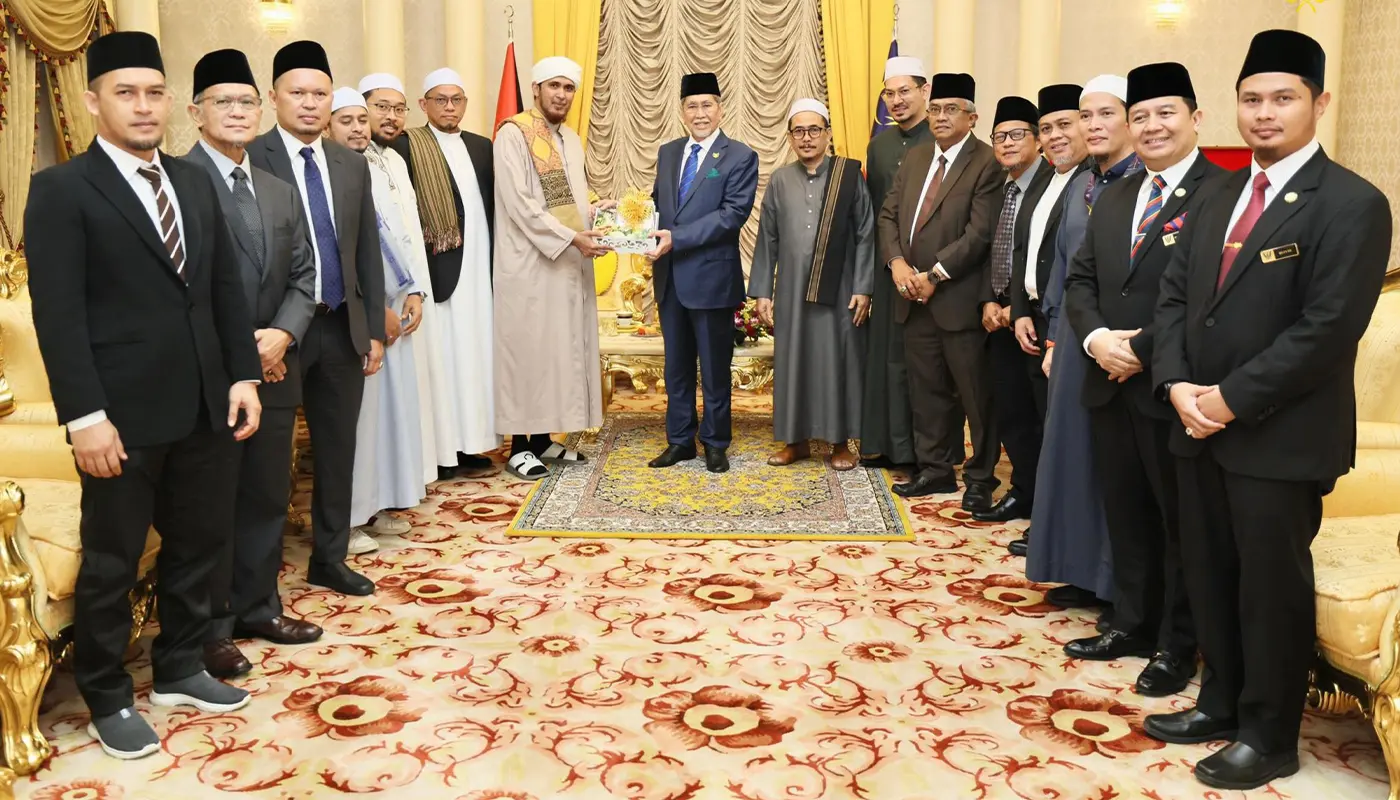KUCHING – The Governor of Sarawak, Tun Pehin Sri Dr Wan Junaidi Tuanku Jaafar, welcomed a delegation of prominent religious figures to the Astana Negeri on Monday. The courtesy visit was led by Al Habib Ali Zaenal Abidin Al Hamid, who serves as Chairman of Yayasan Ar-Ri‘ayah and mentor to Majlis Ta‘lim Darul Murtadza.
Accompanied by members of the Persatuan Kebajikan Mahabbah Kuching, the delegation aimed to fortify ties between the state leadership and religious institutions. The discussions centred on enhancing collaborative efforts in the spheres of dakwah (Islamic propagation), education, and community welfare programmes across the state.
The meeting was strategically timed to coincide with the ‘Majlis Maulid Akbar’ 3.0 Sarawak, a significant event honouring the birth of the Prophet Muhammad (peace be upon him). This larger gathering, held at the Borneo Convention Centre Kuching on 25 October, featured devotional prayers, spiritual discourses, and lectures by esteemed scholars.
Al Habib Ali Zaenal Abidin was not alone in the delegation. He was joined by several key figures, including the Mudir of Madrasah Safinatun Najah Kuching, Habib Mustofa Ali Al Haddad, and the Deputy Mudir of Madrasah Al-Khairat Kuching, Syed Alawi Mahdi Muhammad Al Attas. The Chairman of the Maulid Akbar 2025 Secretariat, Khairul Annuar Datu’ Mohamed Sepuan, was also present.
Representing the Astana were the Senior Private Secretary to the Sarawak Head of State, Dato Sri Syed Hamzah Syed Paie, and the Religious and Research Officer, Syed Mohd Rusydi Wan Yusup. Their presence underscored the institutional importance of the dialogue.
During the wide-ranging conversation, the role of religious bodies in societal development was a key theme. Views were exchanged on strengthening spiritual foundations, expanding welfare networks, and improving the quality of life for the Muslim community. The function of baitulmal and zakat in economic empowerment was also discussed.
Tun Pehin Sri contributed perspectives from his legal and historical background. He provided a detailed narrative on the early establishment of Islam in the region, predating the Brooke era. He highlighted the Banting Kingdom in Lingga as a historical centre of Islamic governance and learning.
The Governor referenced the Lingga Code of Laws, a manuscript pioneered by Syarif Agil bin Syarif Yassin Al Yahya, as evidence of a sophisticated legal system that included maritime law. He noted that this period was characterised by mutual respect and cooperation between the Malay and Iban communities.
The historical account concluded with the end of Syarif rule in Banting Lingga in 1859 after a series of conflicts with the Brooke administration. This shared history forms a crucial part of Sarawak’s rich and complex identity.
Tun Pehin Sri expressed his appreciation for the visit, praising the peaceful and prudent development of Islam in Sarawak. He attributed this to the wisdom of past scholars who emphasised values of love, knowledge, and noble character.
He concluded by offering prayers for the success of all da’wah, educational, and welfare initiatives undertaken by Islamic organisations in the state. Furthermore, he hopes these efforts will continue to yield benefits for the well-being of the people and the continued harmony of Sarawak.







